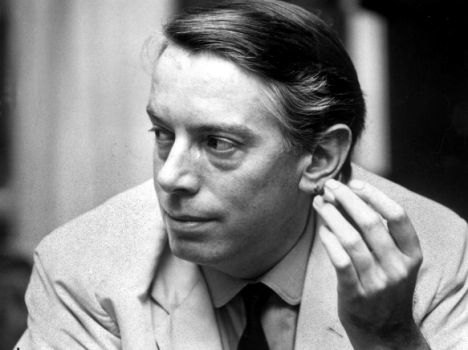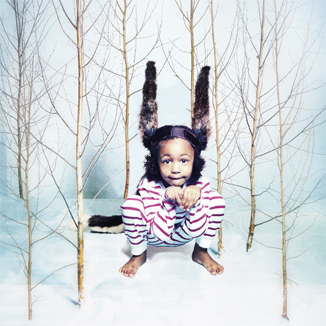Michael Coveney: Critics get stuck in to each other (again), Fevered Sleep delights
Another day, another discussion on the future of theatre criticism
Usual stuff: who do we think we are, where do we think we're going, is everyone a critic now? Interestingly, no-one in the audience of students and professionals suggested for one moment that the tweeters and the bloggers were actually proper critics in the face of some pretty stern defence work on the critic's role from Lawson and Clapp.

O'Hagan had a brilliantly caustic way of posing a question that needed no answer: do all opinions matter (no, which is not to say they are invalid)? Does the culture have the critics it deserves (never)? Susannah was asked who she thought she wrote for and revealingly said, "Myself, really."
This was an honest, if somewhat alarming answer, but you never really know who your readers are wherever you write, even on a dedicated site like WhatsOnStage. She later got into a brief slanging match (with me) about Kenneth Tynan, dissing the great critic as the man responsible, she said with a sneer, for giving us John Osborne. I'd only mentioned him because she said she preferred not writing features about shows and people she might have to review, and I replied that good critical writing could inform all outlets, as exemplified in Tynan's logbooks and profiles, alongside his reviews.
She also said, quite incorrectly, that no-one reviewed site-specific theatre until she did about 15 years ago (and can we please despatch this awful term; all theatre is site-specific, and has been since the Greeks; European theatre has thrived, and been widely reviewed, in quarries, forests, market halls and warehouses for decades; nothing started with Punchdrunk) – and that there were no women critics apart from she and Lyn Gardner when she started in 1997 (oblivious to her distinguished predecessors on the Observer such as Penelope Gilliatt, Helen Dawson, Victoria Radin, and filmmaker Mary Harron to name but four).
Mark Lawson was similarly spiky and provocative, citing his old tutor John Sutherland and Esther Rantzen, of all people, as his mentors: the first advised him that the supposed value of what you write about is irrelevant (hear, hear); while Esther upbraided him, after he'd been disobliging in print about one of her ghastly programmes, that he should think about not what he liked, or disliked, but what the work itself was trying to do (half a hear-hear).
"I couldn't care less whether or not Lawson likes Mr Turner. But I want to read his arguments."
Mark's Susannah moment, as far as I was concerned, was his contention (tossed in as an aside) that Mike Leigh's Mr Turner was not even in the top 15 of that great director's film work, a quite astonishingly perverse critical judgement in my view; which only goes to show that naked opinion really doesn't matter. I couldn't care less whether or not Lawson likes Mr Turner. But I want to read his arguments. (I, for what it's worth, and for starters, see Mr Turner as a brilliant cinematic analogy of Leigh's own difficult career, a portrait of the artist as an uncouth upstart.)
Andrew O'Hagan had interestingly planted the idea that there was a serious disconnect between critics and the public, and I don't think he meant their inability to assess the public's mood or interests (though he might have developed that idea, too); he meant critics seem to be either talking in a void or talking to each other. Critical writing, he suggested, especially about the theatre, has become a self-preserving enclave of echoes and bleats, none of it seemingly touching any sort of public nerve whatsoever.
Skipping agilely past this subtly worded but devastating broadside, Lyn Gardner of the Guardian, nodding wisely in sync with Susannah, declared confidently that her job was about opening the door (for the new), and that most critics did not do this. This flagged up a wonderful image of Lyn as the valiant Joan of Arc of the fringe, listening to her inner voices (often in site-specific locations) and going to the stake for stuff at the BAC and the Rosemary Branch that Quentin Letts thinks is garbage.
Piety's never attractive, nor was this bold assertion of self-importance. There was a low level muttering around me that all that matters about a critic is how well he or she writes, no matter what the subject. The role, function, and what should be his or her task comes later. That's it for me, too, but I'm almost half-way there with Lyn and Susannah on hoping that sometimes good writing about bad theatre will be superseded by good writing about good theatre. And for both examples, you have to start with Shaw and Tynan.

I came over a little site-specific myself on Tuesday morning when I donned a long furry tail and a smear of green face paint to join an audience of six year-olds trying to find and rescue a lost elf in a forest. This was Fevered Sleep's latest, Dusk, a collaboration with the Young Vic where they've been an associate company these past six years.
It was truly wonderful, almost; there could have been a lot more interaction between the well-made film of the lost elf's furry-tailed adventures and the audience of furry-tailed children who'd entered a sort of secret garden only to be left there with a video for well over an hour.
David Harradine, director of Fevered Sleep, wants to make strange, beautiful theatre for little people, and he's not talking Snow White and the Seven Dwarfs. He's talking green, ecologically sound vistas of change and renewal, a new dawn, a bright sky. His heroic elf, like a hobbity version of Odysseus, finds his way back through bracken, storm and cliff-top self-doubt, chewing flowers and communing with snails, back through the red door standing free in the larger Young Vic studio space.
"That was magic," cried a six year-old as the furry-tailed elf came through, at last, to join us and say we could all go on a similar adventure. "Let's go then," cried another child. And, gathering twigs, but removing our furry tails, carefully collected by the stage management, we did, most of us with green paint still smeared down our noses.












